Language card French – Nous voilà partis !
Note: The hard copies are in Dutch. Digital versions of our cards—available in English, Spanish, French, and German—can be found on Amazon and include audio.
This language card Nous voilà partis is the successor to the Pret au départcard. It corresponds to year 2 of our course but is also widely usable alongside other courses. On the front, you’ll find grammatical topics such as partitive articles, adjectives and adverbs, the degrees of comparison and personal pronouns. The back focuses on verbs: the présent of 8 groups of irregular verbs, the imparfait, passé composé and futur. In addition, a list of common regular verbs from the groups donner, finir and vendre.
€ 2.20 | ISBN 978-90-5198-078-3 | Double-sided A4
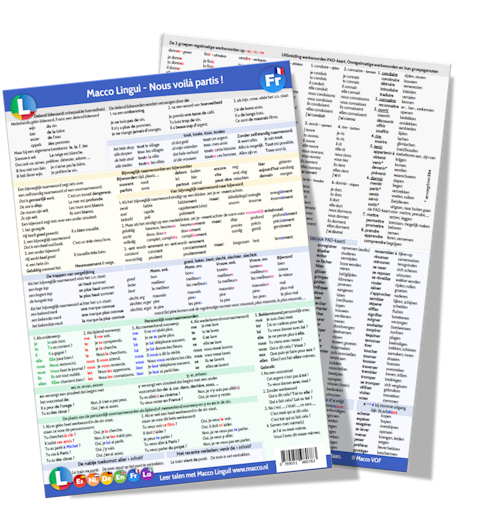
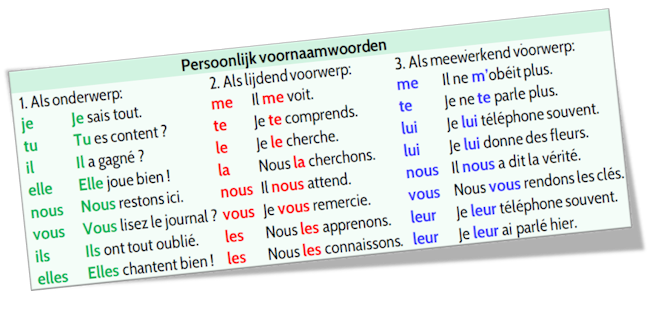
Smart use of color
For the different languages, we use the same colors as much as possible on the language cards and in the app to indicate elements such as masculine, feminine, subject, indirect object, direct object and prepositional object !
Part of our course
This language card closely follows the book and app in our course. It is referenced continuously throughout. These language cards contain the core material for the relevant school year, but they are also used in various exercises designed to give students a passive introduction to topics that will only need to be learned actively later on. The card also works well on its own or alongside other courses, especially in combination with the many matching worksheets and language puzzles we offer!
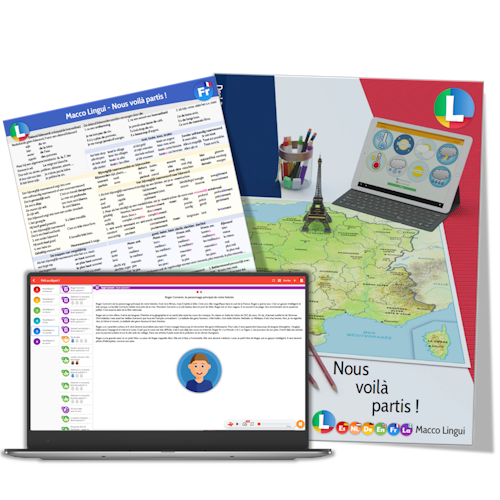

Listen to the language card in the app!
If you follow the course in the app, you will often come across exercises like “31 secondes pour la carte”. Here, you are prompted to take a list from the French language card, listen to it, and read along. This way, you’ll learn them faster and train yourself to get the correct pronunciation right away!
Overview of the content on the Nous voilà partis! language card
- Articles
- partitive articles: du, the la, …
- le, la, … for general meaning, after aimer, preferer, …
- the after a negation or a word of quantity
- Adjectives and adverbs
- Difference between adjective and adverb
- List of adverbs of time and place
- From adjective to adverb
- Degrees of comparison + irregular forms (meilleur, pire, …)
- Personal pronouns
- As subject, direct object, indirect object, or reflexive pronoun, stressed form
- y, en
- Position in the sentence
- Irregular verbs: extension of the PAD card with 8 groups of irregular verbs.
- L'imparfait: formation rule, with être as the only exception
- Le passé compose, conjugated with être and accord
- Le future
- The near future and recent past
- Verb lists
- The group donner
- Change by pronunciation: nous mangeons, nous annonçons, ils achètent
- The group finir
- The group vendre
- The group donner
New spelling
In our course we are switching to the new spelling, which also seems to be gaining more and more ground in education in France. In our textbooks, when new spelling is introduced, almost everywhere a comment is made about the old spelling, which is still accepted.
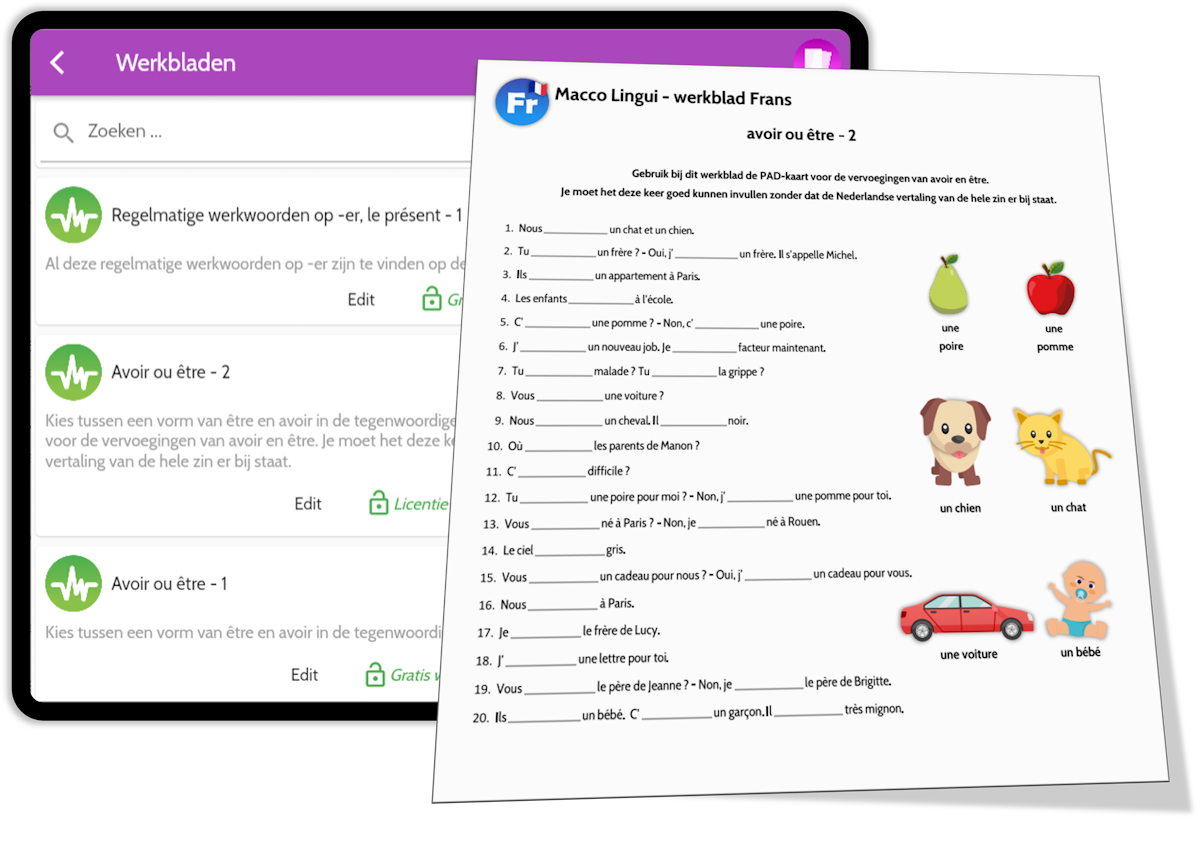
Matching puzzles and worksheets
In the Macco Lingui app , you’ll find many puzzles and worksheets that you can solve using the language cards. You can print these PDFs for yourself or your students. Puzzles can also be completed digitally in the app.
Digital versions and school orders
Schools can purchase the (Dutch versions of the) cards directly via the order form or through well-known educational book suppliers (VanDijk, Iddink, OsingaDeJong). In addition, you’ll find international digital versions of the language cards on Amazon, which you can view and listen to using the Kindle app!
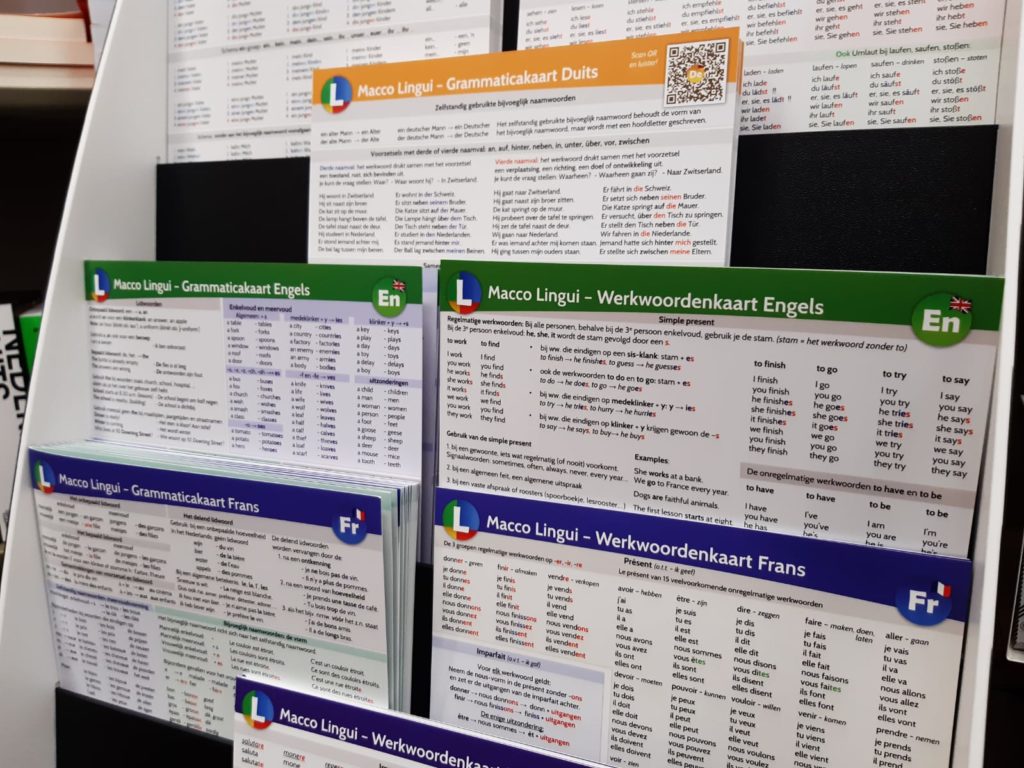
Please respect copyright
Our language cards are subject to copyright. It is not permitted to copy, scan or reproduce the cards in any other way.
© Macco VOF
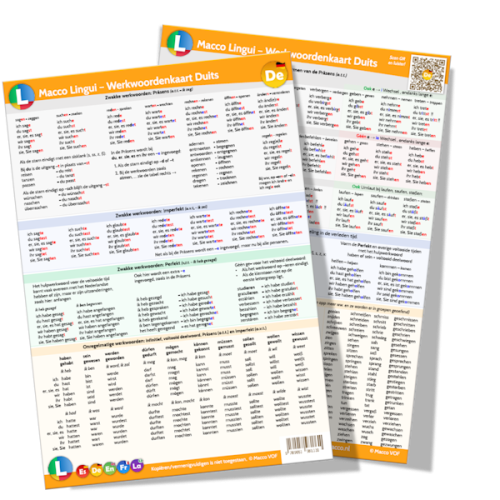
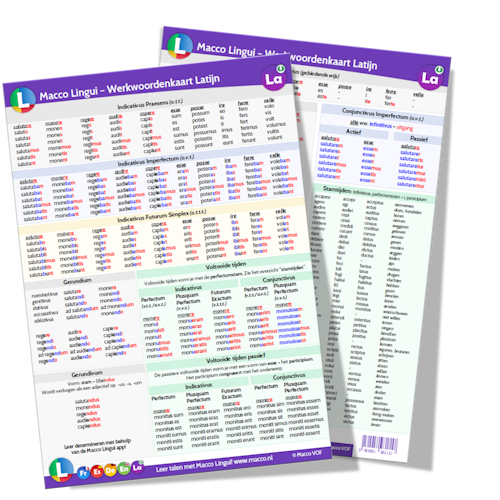
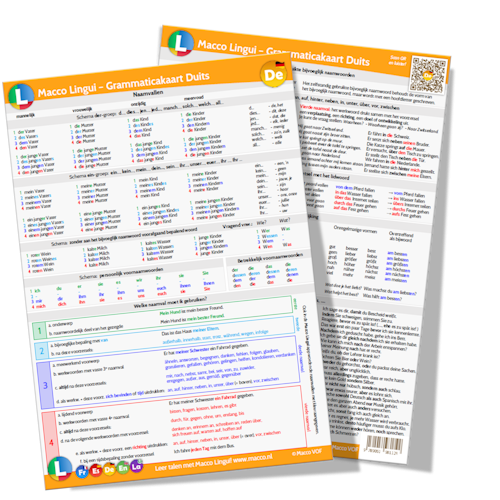
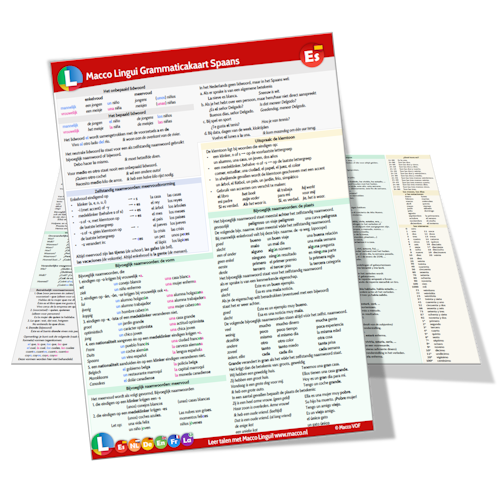
Reviews
There are no reviews yet.